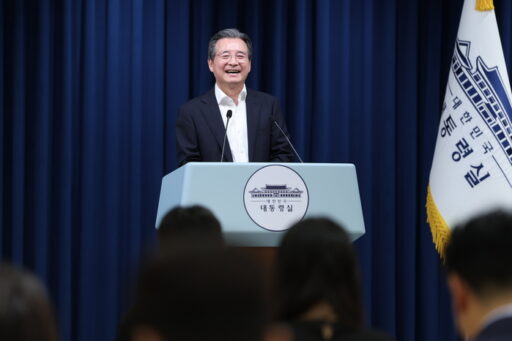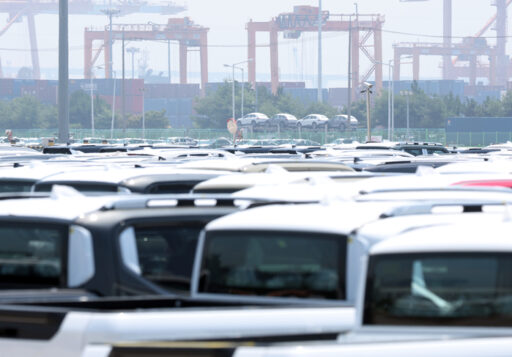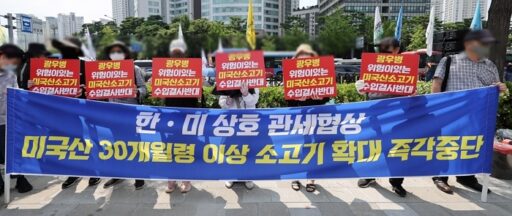Korea-U.S. Tariff Negotiation Concluded, Reduced from 25% to 15%
The Presidential Office announced on the 31st that the tariff negotiation with the United States has been concluded.
In this negotiation, it was stated that "the reciprocal tariff of 25%, which was scheduled to be imposed by the U.S. starting August 1, will be reduced to 15%." The automobile tariff has also been lowered to 15%, and it was agreed not to further open the markets for rice and beef.

Regarding the planned $350 billion investment in the U.S., discussions will continue at the Korea-U.S. summit scheduled for two weeks later.
Kim Yong-bum, head of the Presidential Office's Policy Office, stated during a briefing, "During the negotiation process, our government prioritized national interests and approached the talks with an attitude of deriving mutually beneficial results within a tolerable level."
He added, "The semiconductor and pharmaceutical tariffs that were announced to be imposed later will also receive treatment that is not unfavorable compared to other countries."
$350 Billion Investment Plan in the U.S.
Regarding the $350 billion fund that our side is planning to invest in the U.S., Kim explained, "The most notable aspect is the commitment to expand cooperation in the shipbuilding sector," adding that "$150 billion of this will cover shipbuilding, MRO, and other areas."

Additionally, he announced that "a $200 billion investment fund will be established for sectors where our companies have competitive advantages, including semiconductors, nuclear power, secondary batteries, and biopharmaceuticals."
Kim compared the investment scale with Japan’s and said, "Considering that the U.S. reciprocal tariff measures were initiated to reduce the trade deficit, it is difficult to simply compare the size of Japan's and our funds ($350 billion) on an economic scale," while noting, "The level of trade deficit between Korea and Japan is similar as of 2024."
Previously, Japan, with a trade and industry structure similar to ours, agreed to a $550 billion investment in the U.S. Kim further explained, "Excluding the $150 billion in shipbuilding, our $200 billion is only 36% of Japan’s investment."
No Additional Opening of Agricultural Products
Kim stated, "It is true that there were strong demands for the opening of agricultural products during discussions with the U.S.," but emphasized, "Considering food security and sensitivities, we agreed not to further open the markets for rice and beef."

Currently, the import of U.S. beef is only allowed if it comes from cattle that are less than 30 months old at the time of slaughter.
In this regard, Kim explained, "Although each ministry may have different positions due to political sensitivities, the President made a decision considering the sensitivity of agricultural products and historical context to focus on preventing additional openings."
However, former President Donald Trump previously claimed that "Korea will completely open trade by accepting U.S. products, including automobiles, trucks, and agricultural products," which contradicts the South Korean government's position of not further opening agricultural products.
In response, Kim remarked, "It’s a political leader's expression, so I understand it that way, but the important thing is the conversations with the ministers who conducted the negotiations."
Image sources: Kim Yong-bum, head of the Policy Office, gives a briefing on the conclusion of the Korea-U.S. tariff negotiation at the Presidential Office in Yongsan, Seoul, on the 31st / News1, Export vehicles are lined up at Pyeongtaek Port in Pyeongtaek, Gyeonggi Province, three days before the deadline for the U.S. reciprocal tariff exemption ends / News1, During the national farmers and livestock industry resolution meeting held near the Presidential Office in Yongsan on the 28th, farmers urged opposition to the opening of agricultural products in the Korea-U.S. tariff negotiations / News1


![[Breaking News] Osong Disaster Advisory Team Leader Dies After Attempting Extreme Choice and Undergoing Treatment](https://wordkorean.com/wp-content/uploads/2025/07/thumbnail-1012.webp)